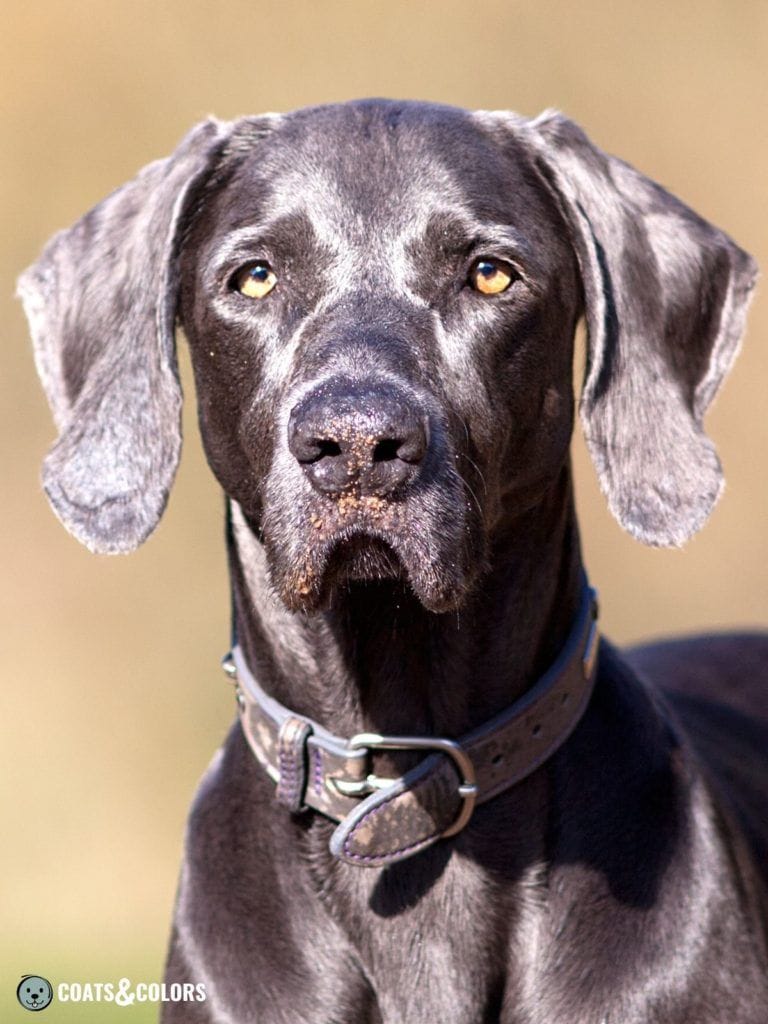
The Weimaraner, a sleek and agile hunting breed, has long been prized for its striking appearance and athletic ability. One of the most distinctive and sought-after variations of this breed is the blue Weimaraner. But what exactly is the blue color in Weimaraners, and how does it occur? In this article, we'll delve into the genetics behind the blue color, explore the history of blue Weimaraners, and showcase some stunning photos of these beautiful dogs.
The Genetics of Blue Weimaraners

The blue color in Weimaraners is the result of a genetic variation that affects the production of melanin, the pigment responsible for hair color. Specifically, blue Weimaraners have a dilute version of the black pigment, which gives their coats a distinctive grayish-blue hue. This dilution is caused by a mutation in the melanocortin 1 receptor (MC1R) gene, which codes for the melanocortin 1 receptor protein.
How the Blue Color is Inherited

The blue color in Weimaraners is an autosomal recessive trait, meaning that a dog must inherit two copies of the mutated gene (one from each parent) to express the blue color. If a dog inherits only one copy of the mutated gene, it will be a carrier of the blue color but will not itself be blue.
A Brief History of Blue Weimaraners

The blue Weimaraner has a long and storied history that dates back to the breed's origins in 19th-century Germany. At the time, the breed was developed as a versatile hunting dog, capable of tracking and retrieving a variety of game. The blue color was highly prized by early breeders, who believed that it made the dogs more visible in the field.
Early Recognition and Controversy

Despite its long history, the blue Weimaraner has not always been recognized as a valid color variant by kennel clubs and breed associations. In the early 20th century, the American Kennel Club (AKC) and other organizations refused to recognize the blue color, citing concerns about its potential impact on the breed's overall health and well-being.
Photos of Blue Weimaraners

One of the best ways to appreciate the beauty of the blue Weimaraner is to see photos of these stunning dogs. Here are a few examples:
A close-up shot of a blue Weimaraner's face, highlighting the breed's distinctive eyes and nose. A photo of a blue Weimaraner in action, showcasing the breed's agility and athleticism. A picture of a blue Weimaraner puppy, demonstrating the breed's playful and affectionate nature.
Conclusion
In conclusion, the blue Weimaraner is a unique and captivating color variant that is steeped in history and controversy. Whether you're a seasoned breeder or simply a dog enthusiast, the blue Weimaraner is sure to impress with its striking appearance and charming personality.FAQs
What is the blue color in Weimaraners caused by?
+The blue color in Weimaraners is caused by a genetic variation that affects the production of melanin, the pigment responsible for hair color.
How is the blue color inherited in Weimaraners?
+The blue color is an autosomal recessive trait, meaning that a dog must inherit two copies of the mutated gene (one from each parent) to express the blue color.
Is the blue Weimaraner recognized by kennel clubs and breed associations?
+Despite its long history, the blue Weimaraner has not always been recognized as a valid color variant by kennel clubs and breed associations. However, many organizations now recognize the blue color as a valid variant.
Gallery of Weimaraner Blue Color Explained And Photos







